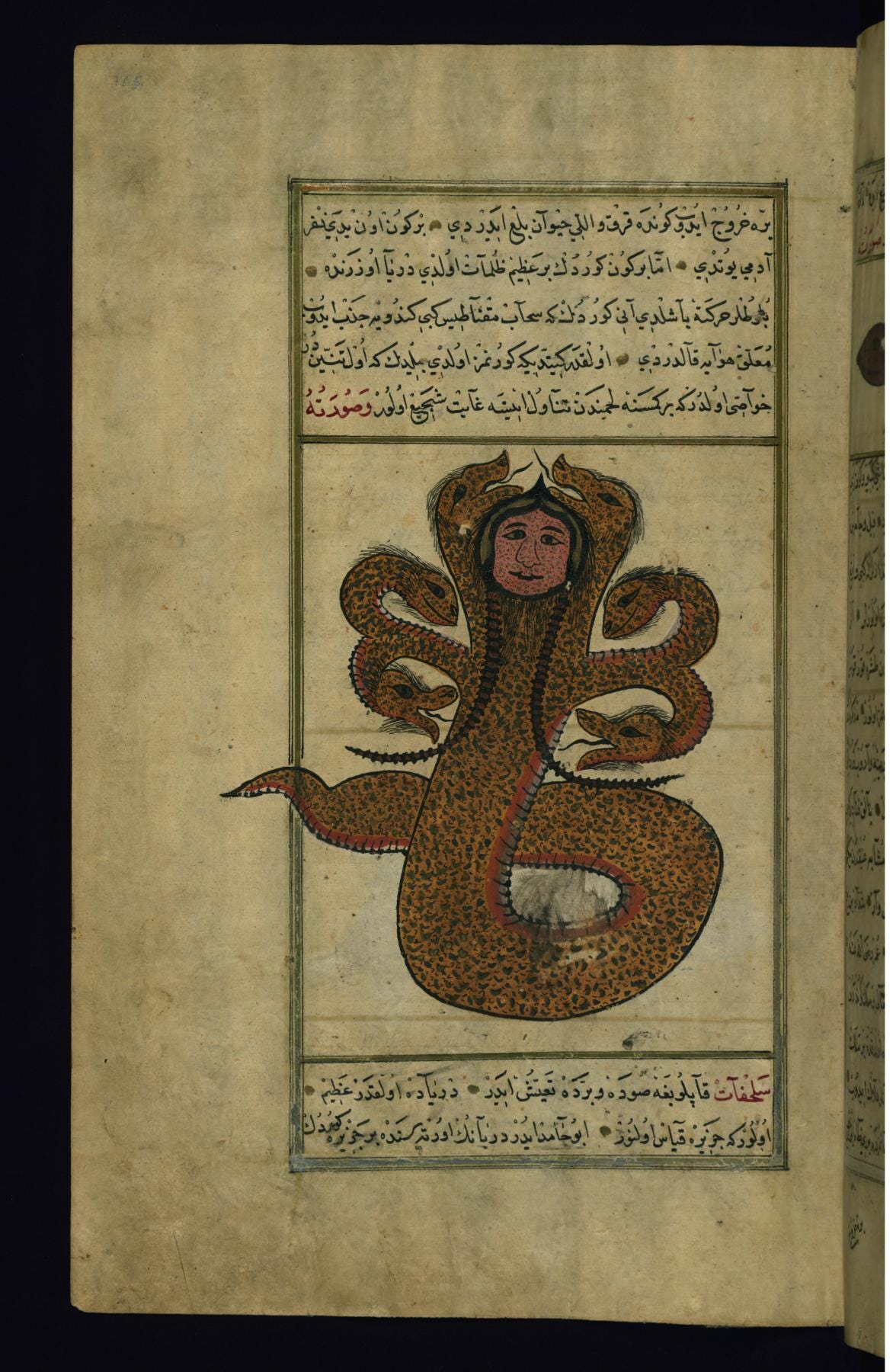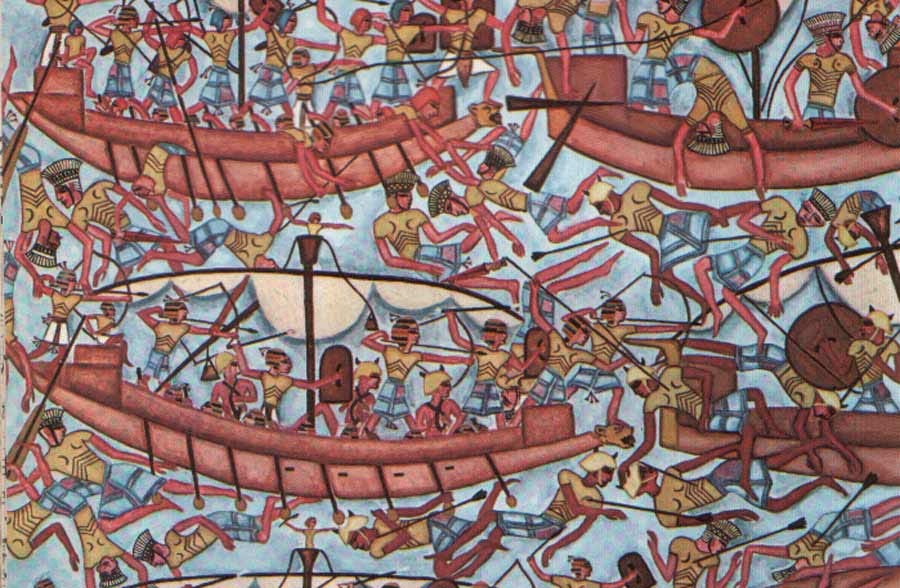Instead of arguing at Eliphaz, Job directly addresses G-d. When it comes to Eliphaz Job is angry, but also hurt because he expects better from his friends. With G-d, Job can be as angry as he wants. The imagery is amazing. Job asks G-d to look away long enough for Job to swallow his spit. We all die, so come on G-d, fuck off for a bit.
There's also a sea monster reference.
First, we need to talk about the Hebrew. Job's writing style is unique in the Bible. I assumed that the text was written long after the rest of the Bible so the language evolved, just like English. Some scholars theorized that Job is a translation from Edomite, which would explain the Edomite names. My Jewish Learning argues that Job uses purposefully archaic Hebrew as a stylistic choice, similar to Deadwood reveling in iambic pentameter. Regardless, one could write a doctoral or at least a masters thesis on this chapter alone. I can't. My Hebrew is very basic. I can read it. I can say thank you and where's the bathroom. I can look up the Hebrew on the concordance. That's about it.
Thankfully, for all the stylistic language the chapter is fairly straightforward. In the three sections Job states:
Everyone is doomed and I am even more doomed (I'm covered in maggots)
I have the right to complain. I can't sleep without nightmares. Am I the sea? Do I look like sea monster? Why does G-d have to treat me like the sea monster?
What is man? Does G-d always have to be in our business. Job is almost dead, so why would G-d keep torturing him?
The translations aren't enough to understand how much this book plays with the language. Most translate the first line as “does not man struggle on earth” but the word for struggle is “war”. When Job talks about “months of futility, nights of trouble” the word for futility isn't havel or havelim like in Koheleth (Ecclesiastes). It's falsehood. So Job was living months of deception, but who was lying to him? His friends? G-d? Reality itself?
Then there's the sea monster, or the tannin. Tanninim are all over the Bible. In Genesis, G-d creates the taninim on Wednesday. Ezekial 29 calls Pharaoh a tannin sitting between his rivers, unaware that Babylon is coming. Isaiah promises that G-d will kill the greatest Tanin, who is the Leviathan – just like there are many kaijus but Godzilla is the best one. In modern Hebrew, tannin means crocodile.
The full line is “Am I the sea? Am I a tannin that you have to watch me?” Beyond the sea monster, the sea is deadly. At any moment, it can bring forth hurricanes, tsunamis and monsoons. In ancient times, it brought invaders. Maybe the sea people didn't destroy the Bronze Age on their own, but they certainly pushed it into a systems collapse (similar to the Huns with the collapse of Rome).
Then there's Moses. The most important prophet's life begins in water (baby in basket), triumphs with water (splitting of the Reed Sea) and ultimately fails due to water (hitting of the rock).
Job isn't a tannin. Job is definitely not Moses. Job is just a schmuck who trusted G-d and paid for that mistake. Job's one consolation is that he will die soon. Then he won't have to deal with G-d's shenanigans.
Next Week: Bildad the Shuhite is not Crowley, sadly.
For more Bible stuff, check out She Nailed a Stake Through His Head
Been a rough couple of months and I’m behind on my rent so please help if you can.







Can I comment? Cool
Jung’s Answer to Job is equally insane!